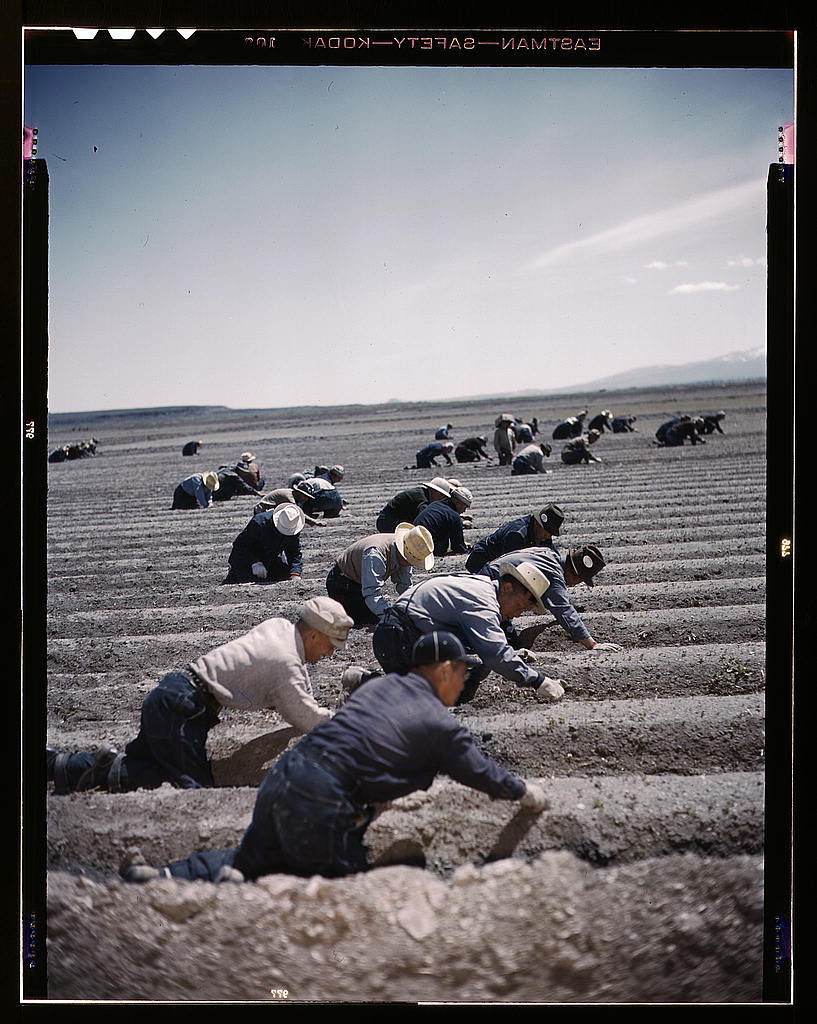 |
| Americans at Tule Lake Internment Camp |
Boy, times were great! Then I got the latest Trek thing I felt I had to buy: To the Stars: The Autobiography of George Takei, Star Trek's Mr. Sulu. Boy, I said, this will be great! I'll get to hear all those stories that Shatner told about making Trek... but now I'll get to hear the Sulu guy tell them!
As it turns out, everyone should read To the Stars, not for amusing Star Trek anecdotes, but because of the truth of Takei's early life.
You see, my father is a history buff, and for anyone born in the middle chunk of the Twentieth Century, as he was, "the" historical event was World War II. The great thing about World War II anecdotes is that if you're American, you always come out on top! Reluctant to enter "Europe's" war? Pearl Harbor... got to get revenge! Germany claims our commerce-driven factories will only create fat-cat Cadillac? Those factories spit out the P-51 Mustang--known (after the fact) as the Cadillac of the sky! Yes, in my early life, there was nothing like a good ole World War II story that showed the good ole US of A.
Which is contrasted--shamefully, horribly--by Takei's early life. The beginning is the stuff of home-baked apple pie: born in Los Angeles, named for the British George VI (crowned in 1937, the year Takei was born), went to public school. However, in 1942, the Takei family and thousands of other American citizens of Japanese origin living on the west coast were forcibly removed from their homes and put into prison camps guarded by the US Army. The crime these families committed: looking Japanese. Speaking Japanese. Being Japanese. It was enough to assume they might collaborate with the Empire of Japan during the war.
 The internment of Japanese-Americans ended in 1945, and George Takei has gone on to international fame and iconography, fortune, ventures into politics, and has enjoyed the full liberties of America, including marriage. That he has so heartily embraced that most American of things--Hollywood, and that his career has spanned over half a century is remarkable. It is even the more amazing that he has come so far from an environment that made such clearly unconstitutional imprisonment an acceptable thing.
The internment of Japanese-Americans ended in 1945, and George Takei has gone on to international fame and iconography, fortune, ventures into politics, and has enjoyed the full liberties of America, including marriage. That he has so heartily embraced that most American of things--Hollywood, and that his career has spanned over half a century is remarkable. It is even the more amazing that he has come so far from an environment that made such clearly unconstitutional imprisonment an acceptable thing.I prefer too the truth of it, the fact that the bold, shining Uncle Sam of World War II is brought a bit down to earth due to his sins in the greater good. It keeps us grounded, even as we look to the stars.
No comments:
Post a Comment